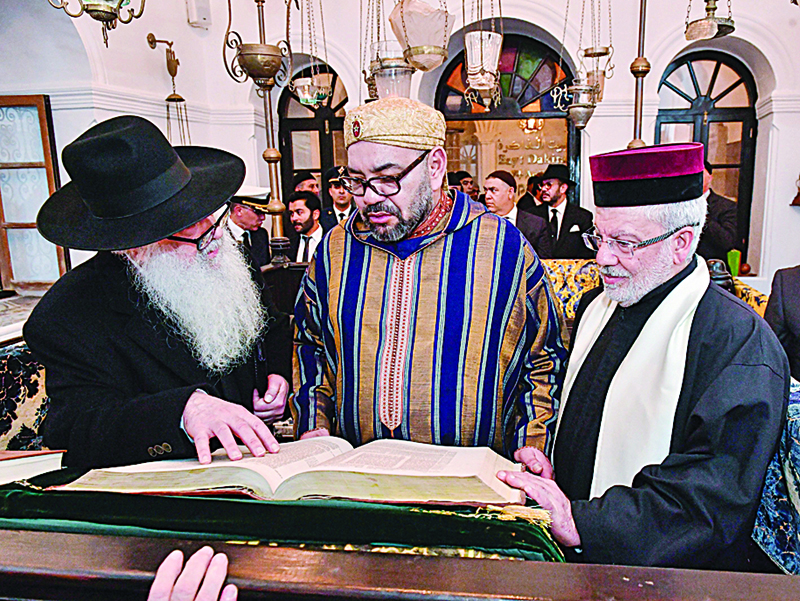
JERUSALEM: Morocco's relations with Israel are unique in the Arab world and bilateral ties were "already normal" before a "normalization" deal was announced, Morocco's foreign minister told Israeli media yesterday. Morocco on Thursday announced a "resumption of relations" with Israel, shortly after US President Donald Trump tweeted that Rabat and the Jewish state had "agreed to full diplomatic relations".
Morocco closed its liaison office in Tel Aviv in 2000 at the start of the second Palestinian intifada, or uprising. Morocco's announcement is widely seen as making it the fourth Arab country this year to unveil plans to normalize ties with Israel through a US brokered deal, following the United Arab Emirates, Bahrain and Sudan. But in an interview with Israel's Yediot Ahronot newspaper yesterday, Moroccan Foreign Minister Nasser Bourita said: "Israel's relations with Morocco are special and can't be compared to the relations that Israel has with any other Arab country."
"From our perspective, we aren't talking about normalization because relations were already normal," Bourita was quoted as saying by the paper. "We're talking about (re-formalising) the relations between the countries to the relations we had, because there have been relations the entire time. They never stopped," he added. A palace statement last week said that King Mohammed VI had agreed to establish full diplomatic relations with Israel with "minimal delay."
That followed Trump's recognition of Morocco's contested sovereignty in Western Sahara, infuriating the Algerian-backed Polisario Front which controls about one-fifth of the vast, arid region. Around 1,000 people rallied in support of the Moroccan position on Western Sahara in front of parliament in the North African nation's capital Rabat yesterday. Bourita, in the interview, highlighted Morocco's enduring connection to Israel through its domestic Jewish community and the estimated 700,000 Israeli Jews of Moroccan descent. "Morocco has an important history with the Jewish community, a history that is special in the Arab world," he told the paper.
Palestinian response
The Palestinians have condemned the string of normalization announcements, which broke with decades of Arab League consensus that there should be no recognition of Israel until it agrees to a peace that includes the creation of a Palestinian state. Abu Dhabi and Manama have already concluded deals with the Jewish state.
Opposition to the deals has emerged as a unifying force between the two main Palestinian entities on the ground, Fatah and Hamas. Fatah controls the Ramallah-based Palestinian Authority and its rival Hamas, an Islamist movement, controls the Palestinian enclave of Gaza. Palestinian president Mahmud Abbas headed to Qatar yesterday for a two-day visit, including a meeting with Emir Tamim bin Hamad Al-Thani. Hamas chief Ismail Haniyeh is currently based in Qatar, but there was no immediate confirmation that he and Abbas would meet.
Despite unity among rival Palestinian factions against normalization by Arab states, Israel's former UN ambassador Danny Danon said the Palestinians needed to "understand that today there is a new paradigm." The Arab model of no ties with Israel until the Palestinian conflict is resolved has been cast aside, he argued. "The new paradigm is first we are forging ties with the Muslim world, with the Arab countries, and together with them we can approach the Palestinians," Danon said, suggesting that future peace talks could include delegates from other Arab states. - AFP

